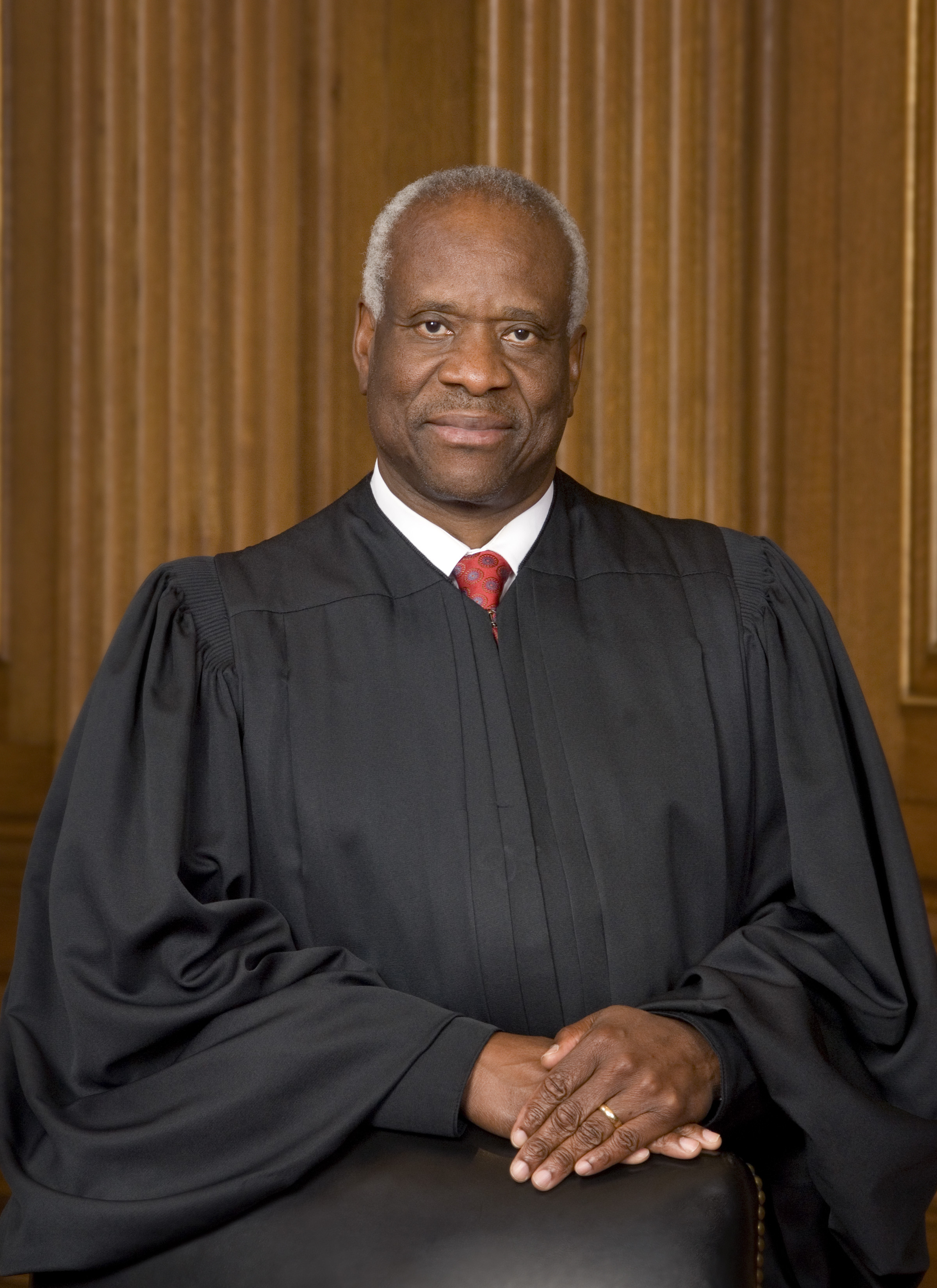1990s, I Am a Man, a Black Man, an American (1998)
Томас, Кларенс: Цитаты на английском языке
1990s, I Am a Man, a Black Man, an American (1998)
1990s, I Am a Man, a Black Man, an American (1998)
“No good comes from being in the woods.”
On the occasion of his 25th anniversary as a Supreme Court Justice; reported in Robert Barnes, " For 25 years, it has been Clarence Thomas v. Controversy https://www.washingtonpost.com/politics/courts_law/after-25-years-supporters-praise-clarence-thomas-but-controversy-is-always-near/2016/10/30/3fba40e4-9d24-11e6-a0ed-ab0774c1eaa5_story.html?wpisrc=nl_headlines&wpmm=1", Washington Post (October 30, 2016).
2010s
“To define each of us by our race is nothing short of a denial of our humanity.”
As quoted in "The New Republic Calls Out Harry Reid on Clarence Thomas" http://www.dinocrat.com/archives/2004/12/08/the-new-republic-calls-out-harry-reid-on-clarence-thomas/ (December 2004), DinoCrat.
1990s
1990s, I Am a Man, a Black Man, an American (1998)
1990s, I Am a Man, a Black Man, an American (1998)
1990s, I Am a Man, a Black Man, an American (1998)
Page 214
2000s, (2008)
1990s, I Am a Man, a Black Man, an American (1998)
1990s, I Am a Man, a Black Man, an American (1998)
1990s, I Am a Man, a Black Man, an American (1998)
1990s, I Am a Man, a Black Man, an American (1998)
Obergefell v. Hodges http://www.supremecourt.gov/opinions/14pdf/14-556_3204.pdf (26 June 2015).
2010s
1990s, I Am a Man, a Black Man, an American (1998)
1990s, I Am a Man, a Black Man, an American (1998)
Page 238
2000s, (2008)
“Something has gone seriously awry with this Court's interpretation of the Constitution.”
Dissenting Kelo v. New London http://caselaw.lp.findlaw.com/cgi-bin/getcase.pl?court=US&navby=case&vol=000&invol=04-108.
2000s, Kelo v. New London (2005)
Page 115
2000s, (2008)
1990s, I Am a Man, a Black Man, an American (1998)
1990s, I Am a Man, a Black Man, an American (1998)
Reported in Ellis Cose, " Justice: Still Keeping Score http://web.archive.org/web/20070605123712/http://www.msnbc.msn.com/id/18248548/site/newsweek/page/2/", Newsweek (April 30, 2007).
1990s
Dissenting Kelo v. New London http://caselaw.lp.findlaw.com/cgi-bin/getcase.pl?court=US&navby=case&vol=000&invol=04-108.
2000s, Kelo v. New London (2005)
1990s, I Am a Man, a Black Man, an American (1998)
1990s, I Am a Man, a Black Man, an American (1998)
